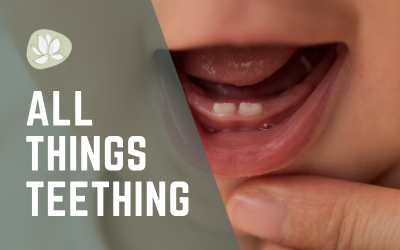Being a new mom is many things simultaneously – wonderful, rewarding, challenging, defeating, daunting, and fulfilling. And it can be challenging to navigate new experiences with your baby. For first-time moms especially, it can be hard to know when something is normal or when to pay close attention to a symptom, intervene, or call for help with a protocol or Doctor’s visit.
And while every baby and every need is unique, in our experiences as mothers and supporters of mothers, less is usually more when it comes to your baby’s needs. Barring any emergency or life-threatening situations, here are a few reasons why this is often the case:
Nervous System Regulation
A baby experiences a lot of new stimuli being out of the womb, which can be overwhelming as they teach or earn how to regulate their nervous system. What may seem like colic or digestion issues might be an appropriate physiological response to something the baby doesn’t understand how to digest yet. Instead of giving the little one meds for colic or reflux, we look at their food source and how we can make this more palatable for the baby’s nervous system. Wheat, dairy, and packaged foods are the most common colic reflux-causing foods that moms can eat. Unfortunately, formulas are filled with allergens, and those made with organic goat milk are often better for little tummies.
The Learning Curve
Another aspect to consider is learning curves. Learning curves are a massive part of what causes reactions in babies because… let’s face it – the world is a new and unfamiliar place to them. Everything is a learning experience for babies as they discover and explore the world around them. They constantly process new sights, sounds, smells, tastes, and sensations, which can be overwhelming and overstimulating. Furthermore, babies have limited ways to communicate their needs and wants, which can lead to frustration, but frustration doesn’t necessarily warrant an intervention. Being aware that cotton in the ears muffles sounds, limiting touch by strangers, and having to process different fabrics or smells can go a long way in preventing the “fussy” baby.
Appropriate Immune Response
Of course, sometimes, some factors increase a baby’s immune response, including jaundice, reflux, and colic. If you’ve made the above changes and still are having difficulties, don’t just brush it off as babies are fussy (they are not). Let’s bring in a chiropractor trained in adjusting infants. Birth is hard. C-sections are almost 5X harder on the little spine than vaginal birth. These misalignments can cause a miserable baby leaving them more susceptible to crying as their method to let you know they need help.
I created this webpage to assist you in situations you feel overwhelmed or scared, give you immediate answers, or allow you to check in to see if this is all normal. Use the search box to find blogs to help or the chat box to let us know what you want us to write about next.




Recent Comments